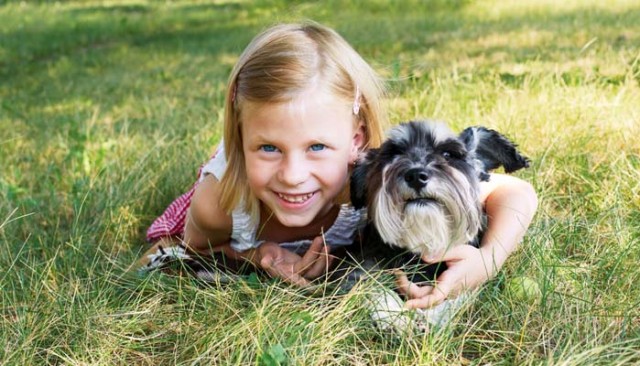
Did your kids ever try to convince you to letting them have a dog? Or maybe you don’t have kids yet, but know you will always have a dog in your life no matter what or who comes along?
If you always wanted a dog and never had a good reason to adopt one, it is your lucky day. Researchers have discovered that kids with dogs are less likely to have childhood anxiety.
Over a period of 18 months, researchers from the Basset Medical Center, the University of Oklahoma Health Sciences Center, and Dartmouth Medical School analyzed almost 700 children in a pediatric primary care setting in upstate New York.
Before they took their child to their annual visit, parents answered questions about their child’s BMI, physical health, mental health, screen time, and pet status. In addition to the child’s mental health, researchers also took the parents mental health into account and screened them for depression.
Throughout the children test subjects, their BMI, physical activity, and screen time did not differ an extraordinary amount whether they had a dog or not. However, researchers did find 21 percent of children without dogs met the clinical threshold for anxiety and related disorders. Of those with dogs, only 12 percent met the threshold.
Clearly, having dogs around is good for the whole family.
Study authors wrote, “Pet dogs could reduce childhood anxiety, particularly social and separation anxiety, by various mechanisms.” Dogs serve as a stimulation of conversation for kids; this has an ice-breaking effect that can greatly reduce anxiety.
When children are exposed to adult dogs when young and have positive experiences, it can prevent the evolution of anxiety into full-fledged disorders later in life.
More studies have found interacting with dogs can reduce the stress hormone cortisol and can actually increase the happy hormone oxytocin. This means that dogs make you happy.
RELATED: 14 Scientifically Proven Cases Where Dogs are Better than Doctors
Not only are dogs beneficial to your child’s mental health, but they are also good for their physical health. A relatively new study has found that kids who grow up with a dog in the home are less likely to develop asthma.
Of course, you need to make sure your dog knows how to behave around your child. Many dogs have a natural nurturing gene that comes out when you bring home a new little human.
Most dogs know that this little person is breakable, that they need to be careful and patient with them. Some dogs, however, take a little while to warm up to kids. This doesn’t mean you need to get rid of your dog; it just means you shouldn't rush the relationship.
If your dog suffers from anxiety, they may have a harder time adjusting to the new addition. Do not fear though! There are people out there trained to help your pet become adjusted to the new baby.
There are many ways to redirect your dog’s anxiety so that they do not associate it with the baby and will learn new ways to handle their stress. In some situations, you may have to wait until your child grows older and learns how to behave around the dog before the dog can relax; but it will happen sooner than you think.
If you have young children and are thinking about getting an older dog so you don’t have to worry about potty training and other assignments, talk to the people who had the dog before you.
If you are adopting from a shelter, talk to the staff so they can help you pick out the right dog for your family. Many places perform a temperament test to ensure the dog can handle child-like behaviors.
For example, kids are always pulling tails and ears, getting in the dogs face, and sticking their hands in the dog bowl. You don’t want a dog that gets defensive if someone gets in their face or is protective of their food and will attack if put your hands near it. Staff will help you find the dog best for your family.
So if you needed just one more reason to convince yourself that your family needs a dog, it doesn’t get any better than this. Knowing the dog will reduce your child’s anxiety is a win-win-win for you, your child, and your new dog.














